When you think about Anne Boleyn’s execution, do you know all the men she was accused of having an affair with? Could you name them all without looking back over any previous articles or doing a Google Search? Sir Francis Weston is one man that is commonly missed off the list. In fact, he wasn’t really mentioned in Showtime’s The Tudors until it came to the execution on May 17, 1536.

Sir Francis Weston: A Man Regularly Forgotten About in History
Sir Francis Weston was the fifth man accused of having an affair with Anne Boleyn but is regularly forgotten about in history.
The Early Years of Sir Francis Weston
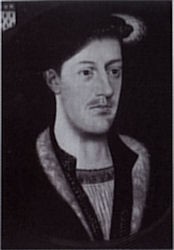 Francis was the son of Anne Sandys, a lady-in-waiting to Catherine of Aragon. Sir Richard Weston, his father, was the Under-Treasurer of the Exchequer at one time so Francis was born into a fairly wealthy and important family. He was born around 1511, making him about 10 years younger than Anne Boleyn, and moved to Sutton Place in 1521.
Francis was the son of Anne Sandys, a lady-in-waiting to Catherine of Aragon. Sir Richard Weston, his father, was the Under-Treasurer of the Exchequer at one time so Francis was born into a fairly wealthy and important family. He was born around 1511, making him about 10 years younger than Anne Boleyn, and moved to Sutton Place in 1521.
In 1530, he married Anne Pickering, and they had a son five years later. Henry Weston was just one-year-old when Francis was executed for treason. Within Saffron Walden Museum there is an oak cupboard that holds a portrait of Francis and his wife.
At some point in his life, Francis was promoted to a member of the Privy Chamber. This was a role that led to him being a close acquaintance of the King, similarly to Sir Henry Norris and Sir William Brereton. He would have also been close to Anne Boleyn and was a friend of her brother, the Lord Rochford.
His close relationship with the Boleyns could have been the reason Thomas Cromwell decided that he would be a man to remove as a threat. Cromwell wanted all the Boleyn faction to be removed from power and the possibility to advise the King.
During the coronation of Anne Boleyn in 1533, Francis gained a promotion. He was named the Knight Companion of the Order.
Learn More About Francis Weston with Books About Anne Boleyn
Sir Francis Weston and a Relationship with George Boleyn
In The Other Boleyn Girl by Phillipa Gregory, there is a mention of how Francis and George Boleyn were lovers. This was based on the idea from Retha Warnicke that those arrested and charged for adultery were libertines and their sexuality was ambiguous. Warnicke believed that libertines would progress to commit adultery, buggery and bestiality.
There is no proof that Francis and George had an affair – just like there isn’t evidence of one between George Boleyn and Mark Smeaton. In fact, there is no proof that Francis Weston ever had an affair or that his marriage was unhappy enough for this to happen.
On May 3, 1536, Ms Coffin was sent by Cromwell to spy on Anne. She mentioned that there were two events involving Francis and Anne; the worst being that Francis was reprimanded for flirting with Madge Shelton, who was betrothed to Sir Henry Norris at the time. Anne went on to wonder why Henry and Madge had not married yet and Francis mentioned how he would go to see Anne more than her cousin.
If these events did play out, it is possible that these would have been enough to make it seem like Anne Boleyn was having an affair. However, it did not offer any evidence for Francis to be arrested and executed.
Sir Francis Weston Arrested
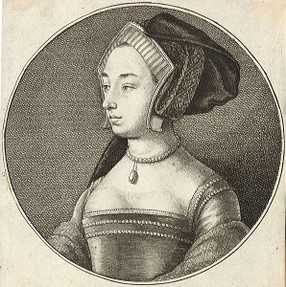 Francis was questioned on May 3 and interrogated by the council of the King. He continually denied the charges put against him and protested his innocence. It was all in vain when he was arrested the next day, along with William Brereton.
Francis was questioned on May 3 and interrogated by the council of the King. He continually denied the charges put against him and protested his innocence. It was all in vain when he was arrested the next day, along with William Brereton.
There was some evidence of Francis declaring that he loved Queen Anne. This would have been enough for treason, except that he probably meant that there was a courtly love for his Queen. Alison Weir, and other historians, explain how the Queen had to be seen as being available so that the people of England and the members of the Court would love her. It was a very fine line and flirtations could be seen as treason. At the same time, subjects would have to love their Queen, otherwise it could be seen as treason not to!
Really, Francis and Anne had no escape because of some simple and innocent words. Unfortunately that was just the time of the period. Cromwell used the evidence as a way to convict Francis for his love for Anne Boleyn.
Watch Showtimes The Tudors
 |  |  |
| The Tudors | Episode 1 | The Tudors: The Royal Collection - Th... |
Sir Francis Weston Convicted of Treason
Sir Francis was tried on the same day as Sir Henry Norris, Brereton and Smeaton. Like the others, he would not have had the chance to hear all the evidence beforehand and would have not been allowed a defence. That was just the way that traitors were treated and it made it near impossible to ensure they had a fair trial.
Had Francis known the evidence against him, he may have realised that the majority of the dates had to have been made up. One the dates that Francis was supposed to have had an affair with Anne, she was pregnant or recovering from a miscarriage. Anne wouldn’t have had intercourse with her husband, let alone an affair, during this time.
Another thing against Francis Weston was that the jury was made up of men who had a reason to find him guilty. They owed money to the King or other people in power or wanted to get back into the good graces of the King so had to deliver the verdict they believed the King wanted, whether the men were guilty or not.
It is unclear as to how well Francis defended himself. The court records from his trial, along with those from the other three men from the same day, are missing. It is possible that the transcripts were never written so that there was no questioning of the detail at a later date. The accounts are purely based on eye-witnesses and rumours. Francis did continue to plead his innocence though but was found guilty of treason.
The English people were sad upon hearing the events. They were fond of Frances and did not want to believe the truth. Francis’ wife and mother pleaded to the King, with his wife offering goods and rent as a way to buy a different verdict. Sir Richard Weston tried to save his son by meeting with Cromwell and Henry VIII but it was no use. It is possible that Henry VIII never knew about Sir Richard wanting to meet with him but it is also possible that he really believed the charges of the men and never knew of Cromwell’s plot to remove the Boleyn faction.
Sir Francis Weston Executed
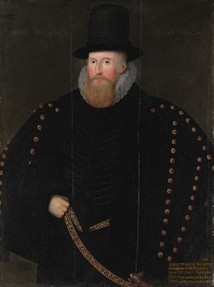 On May 17, 1536, Francis was led to his death. He was third or fourth to be executed – the accounts of whether he or William Brereton were third are mixed. He apologised for his sins and living a life of abomination.
On May 17, 1536, Francis was led to his death. He was third or fourth to be executed – the accounts of whether he or William Brereton were third are mixed. He apologised for his sins and living a life of abomination.
This abomination has led to the speculation that he was involved in buggery. Warnicke believes that this is a crime he was talking about but Weir believes that he simply meant any illicit sexual act or any of his sins – even if he wasn’t guilty of an affair with Anne Boleyn, Francis was simply a man and would have committed some sins.
He was buried in an unmarked grave with Henry Norris.
Just after his death, his wife married Sir Henry Knyvett. An affair is unlikely. Knyvett helped Anne try to fight for Francis’ verdict to be overturned and it is possible that they grew close. Anne had six children with Kynvett by the time he died in 1547 and she then married John Vaughn. She died in 1582 believing that her husband was really innocent.
The Executions of 4 Innocent Men from The Tudors
You might also like
England Under the Tudors: Would King Edward VI Have Been a Goo...Edward VI reigned between 1547 and 1553 when he was just a boy. It's hard to ...
Lady Jane Boleyn: Vindictive Woman or Pawn in a Plot?Jane Boleyn is known for her part in bringing down the Boleyn faction. How mu...
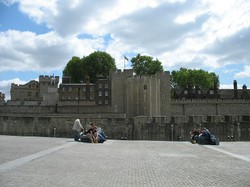





 Alternate History: What If Mary I Had a Child?on 01/26/2015
Alternate History: What If Mary I Had a Child?on 01/26/2015
 Francis II of France Dies: Mary, Queen of Scots Returns Homeon 12/05/2014
Francis II of France Dies: Mary, Queen of Scots Returns Homeon 12/05/2014
 Does Writedge Pay? Payment Proofon 12/03/2014
Does Writedge Pay? Payment Proofon 12/03/2014
 Alternate History: What If Lady Jane Grey Was Not Deposed?on 11/11/2014
Alternate History: What If Lady Jane Grey Was Not Deposed?on 11/11/2014

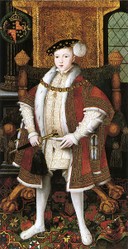
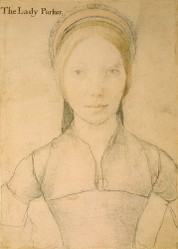
Comments